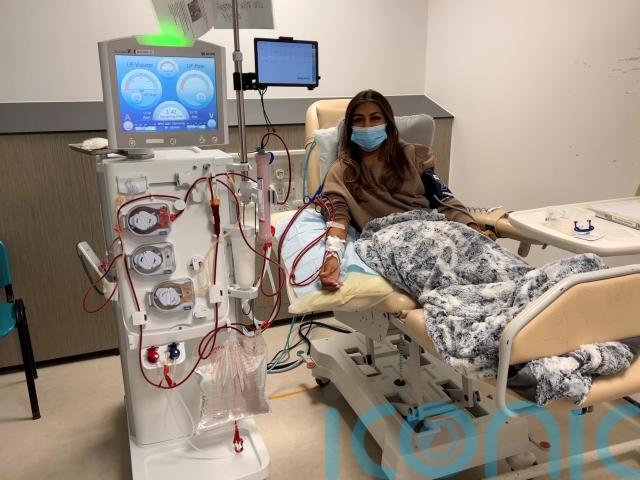Scientists plan to double-match blood intended for use in kidney transplant patients to lower the chances that their donated kidneys will be rejected.
Not only will researchers ensure that blood types match, but they will also match white blood cells as closely as possible.
If a six-month pilot scheme at London's Hammersmith Hospital is successful, the initiative could be rolled out nationwide.
Approximately two in five kidney transplant patients require a blood transfusion before or after transplant.
After a transfusion, some patients develop antibodies that can be directed against the newly donated kidney, increasing the likelihood of organ rejection.
The hope is that by matching as closely as possible the white blood cell type (also called tissue type or HLA type) of the blood donor and the organ transplant patient, the patient will be less likely to reject the “foreign” organ.
NHS Blood and Transplant (NHSBT) will match the blood at its specialist histocompatibility and immunogenetics laboratory in Colindale, London, and supply it to selected pre- and post-transplant patients at Hammersmith Hospital, part of Imperial College Healthcare NHS Trust.
Dr Colin Brown, consultant clinical scientist at NHSBT and head of histocompatibility and immunogenetics at Colindale, said: “This pilot programme will provide kidney transplant patients with HLA-matched red blood cell transfusions, avoiding sensitisation to the donor kidney and reducing the risk of kidney transplant rejection.”
“If kidney disease patients develop HLA antibodies in response to blood transfusions, this can impact access to transplants and transplant outcomes. This is an innovative pilot program that we hope will improve outcomes for patients.”
“Every year, around 1,000 kidney patients who receive transplants also receive blood transfusions. If they could all benefit from a successful and more widespread transfusion programme, our model shows that 100 kidney transplants per year could be saved.”
Gemma Lewis, 44, from Chester-le-Street, County Durham, has been waiting for a kidney transplant for 11 years because of “transfusion sensitivity”.
Lewis, a civil servant, suffers from chronic kidney disease and requires four-hour dialysis three days a week.
The mum-of-two said: “Initially we were told we would be waiting around six years, double the usual time. Now it's been 11 years.”
“I knew I would have to wait a long time because of the antibodies I developed from the transfusion. Finding a match that won't reject it is even harder. This program seems like it could help people like me in the future.”

Alisha Gorkani, 25, from Sidcup, south London, suffers from juvenile pyelophthisis and had been waiting seven years for a compatible kidney transplant.
She developed antibodies from a mix of blood transfusions and a previous kidney transplant.
“I have a lot of antibodies so I may have to wait a very long time. I'm trying my best but waiting for a kidney transplant and undergoing dialysis is very hard,” said the solutions advisor at a tech company.
“If people like me can get a better blood match in the future, it gives me hope. There are thousands of people hoping for a miracle match.”
As of the end of March, 5,870 people were on the waiting list for a kidney transplant in the UK.
ADVERTISEMENT – CONTINUE READING BELOW
ADVERTISEMENT – CONTINUE READING BELOW
ADVERTISEMENT – CONTINUE READING BELOW
ADVERTISEMENT – CONTINUE READING BELOW
ADVERTISEMENT – CONTINUE READING BELOW
ADVERTISEMENT – CONTINUE READING BELOW
ADVERTISEMENT – CONTINUE READING BELOW
ADVERTISEMENT – CONTINUE READING BELOW
ADVERTISEMENT – CONTINUE READING BELOW

